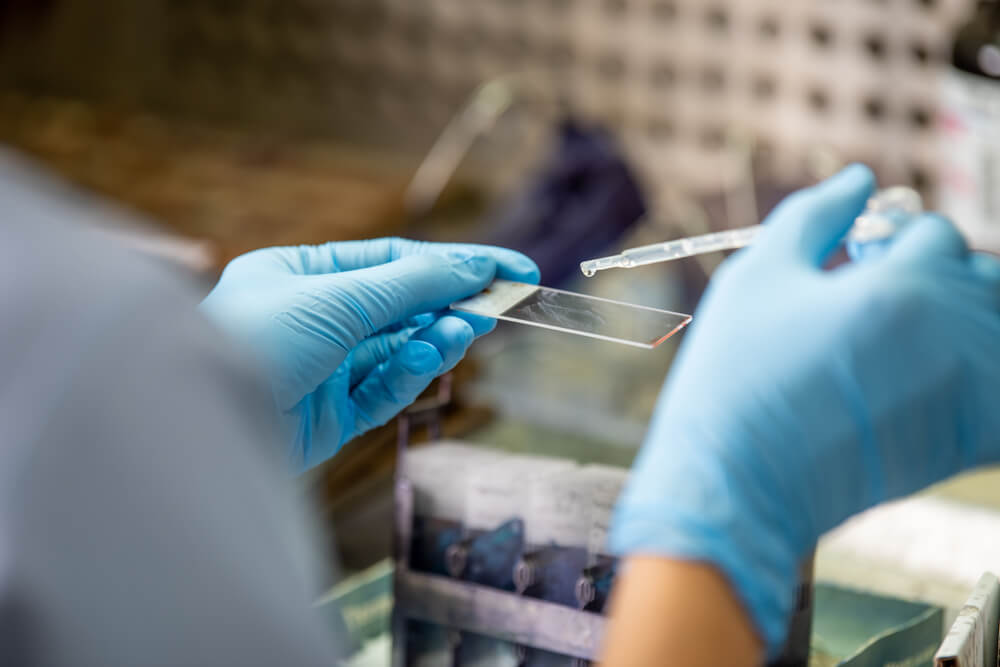You just received the results of your pap smear, and it’s not what you expected.
You immediately panic and worry you may have cervical cancer.
There is no need to panic.
Most women with abnormal pap smears do not have cervical cancer. This is not only been our experience at South Miami OB-GYN Associates but has also been validated statistically, However, it is important that you schedule a follow-up with your OBGYN as soon as possible since there are many things that can influence your test results.
Worried about your pap smear results or looking for options regarding cervical cancer screening in South Florida? Schedule an appointment in either our Downtown Doral or South Miami office today.
What is a Pap Smear?
A pap smear, also referred to as a pap test, is part of a women’s standard preventative care and screens for abnormal cervical cells that may be pre-cancerous. Using a narrow, brush-like instrument called a speculum, your OBGYN will collect a small number of cells from the cervix. This procedure typically only takes a few minutes and is not painful. Once the cells are collected, they will be sent to a lab to be tested.
When the lab receives the cells, they will test for abnormalities, cervical cancer, infection, and general inflammation. If any of these conditions are detected, the test results will be returned to the physician and marked as “abnormal.”
HPV and Cervical Cancer
Almost all cervical cancer cases are caused by human papillomavirus (HPV.) Since the approval of the HPV test to be used in conjunction with standard pap smears, called a co-test, abnormal cells are being detected much earlier, and death rates are declining. Still, it’s essential to remain vigilant and receive routine pap smears so signs of pre-cancerous cells can be detected early.
Cervical cancer is the leading cause of cancer-related death in women. The American Cancer Society estimates that about 14,100 women will be diagnosed with cervical cancer this year alone.
What Causes an Abnormal Pap Smear?

An abnormal pap smear does not necessarily mean cancer. There are several causes for an abnormal pap smear, many of which are highly treatable.
Common causes of abnormal pap smears:
- The presence of a sexually transmitted infection or disease
- A bacterial infection
- A yeast infection
- Cervical dysplasia caused by human papillomavirus infection (HPV)
Your OBGYN will make recommendations for treatment and next steps based on the specific cause and their level of concern. In many cases, an abnormal pap smear may not require any treatment. If an infection is a cause, your physician will likely prescribe medication and order another pap smear after a certain period to re-test.
If a bacterial or sexually transmitted infection is present, some uncomfortable symptoms may be present or develop. These are some common symptoms that can be related to an abnormal pap smear:
- Unusual vaginal discharge
- Vaginal soreness
- Genital warts, sores, or rashes
- Pain or itching sensation during urination or intercourse
How Often Should You Get a Pap Smear?
The U.S. Preventive Services Task Force recommends getting screened for cervical cancer and any abnormal cells regularly. The regularity of the screenings varies depending on your age.
For women aged 21-29: Women should receive their first pap smear at age 21 and regularly every three years after that.
For women aged 30-65: Women should receive an HPV test every five years, an HPV/Pap co-test every five years, and a standard pap test every three years.
For updated screening recommendation guidelines, visit the American Cancer Society.
What is Cervical Dysplasia?
Cervical dysplasia refers to an unusual growth of cells on the surface of the cervix and is the most common cause of cervical cancer-related deaths. This growth occurs when the human papillomavirus (HPV) is contracted, which affects about 79 million Americans. HPV, while concerning and untreatable, is incredibly common. According to the Office of Women’s Health, about 80% of women will get one of the forty different strains of HPV at least once. Most people with HPV don’t know they have it.
What To Do If You Have Cervical Dysplasia
In 9 out of 10 cases, cervical dysplasia and HPV will go away on their own over time, according to the Centers for Disease Control and Prevention. If cancer does develop, it can take years after the initial HPV contraction.
If you have had HPV and have received normal pap smear test results since, the virus has either dissipated or has become dormant. If the HPV has indeed cleared, your immune system should be better able to fight against it should you be exposed again, but research is still inconclusive on complete immunity. For this reason, precautions should still be taken to avoid re-infection.
The Four Ways to Prevent Cervical Dysplasia and HPV:
- If you haven’t had HPV, consider getting the HPV Vaccine.
- Avoid non-monogamous sexual relationships.
- Use condoms correctly.
- Get routine pap smears.
How Are Abnormal Cells Tested and Treated?

If cervical dysplasia is suspected, your physician will order a colposcopy test to be performed to get a more precise diagnosis. During a colposcopy procedure, your physician will use a lighted microscope (called a colposcope) to magnify the tissue within your cervix. This will allow your physician to examine the cellular tissue better and take samples (called a biopsy) for further testing if needed.
It’s beneficial to understand that the implications for abnormal pap smear results follow a grading system. Some cases of dysplasia may be very low-risk, while others may be more serious. It depends on how much of the cervical tissue is abnormal.
Abnormal, pre-cancerous cells are graded on a scale of 1 to 3:
- For a low grade of 1: This is mild dysplasia and represents the least-serious form of cervical pre-cancer. This occurs when only some of the tissue is abnormal.
- For higher grade of 2 or 3: This is moderate-to-severe dysplasia and represents the most serious form of pre-cancer. This occurs when most of the tissue is abnormal.
Preventing Cervical Cancer
The best way to prevent cervical cancer is to see your OBGYN routinely and get tested. While getting a routine pap smear is critical, it is equally important to get an HPV test. An HPV test will look specifically for signs of high-risk HPV. Any signs of HPV that are detected are more likely to develop into pre-cancerous cells. These cells can be treated and removed if caught early.
Having pre-cancerous cells, however, does not automatically mean they will develop into full cervical cancer. The American Cancer Society states that for most women, the pre-cancerous cells go away on their own without any treatment.
The key goal for prevention is to catch the presence of any abnormal cells early by scheduling routine pap smears and HPV tests.
At South Miami OB-GYN, we have seen firsthand the benefits of scheduling a pap smear. We offer the pap smear in both our Downtown Doral and South Miami practices and are dedicated to providing you with the most up-to-date diagnostic and treatment information.
Schedule your pap smear today online or call 305.665.1133.




